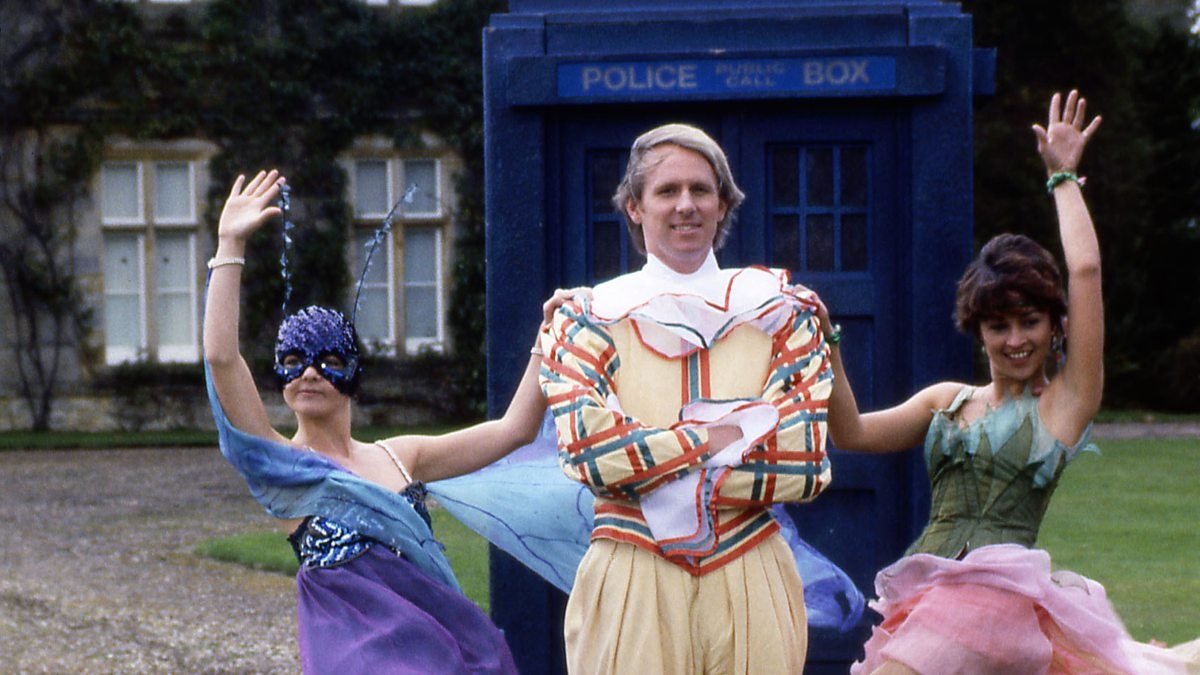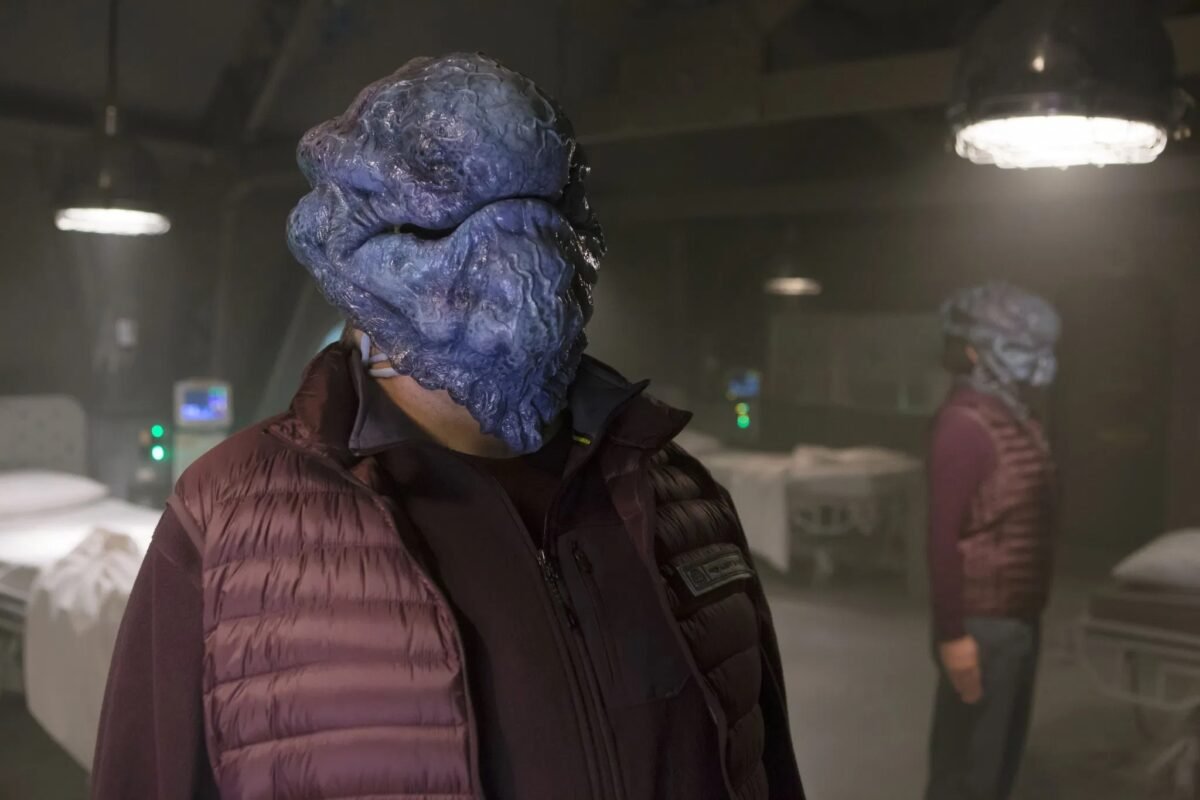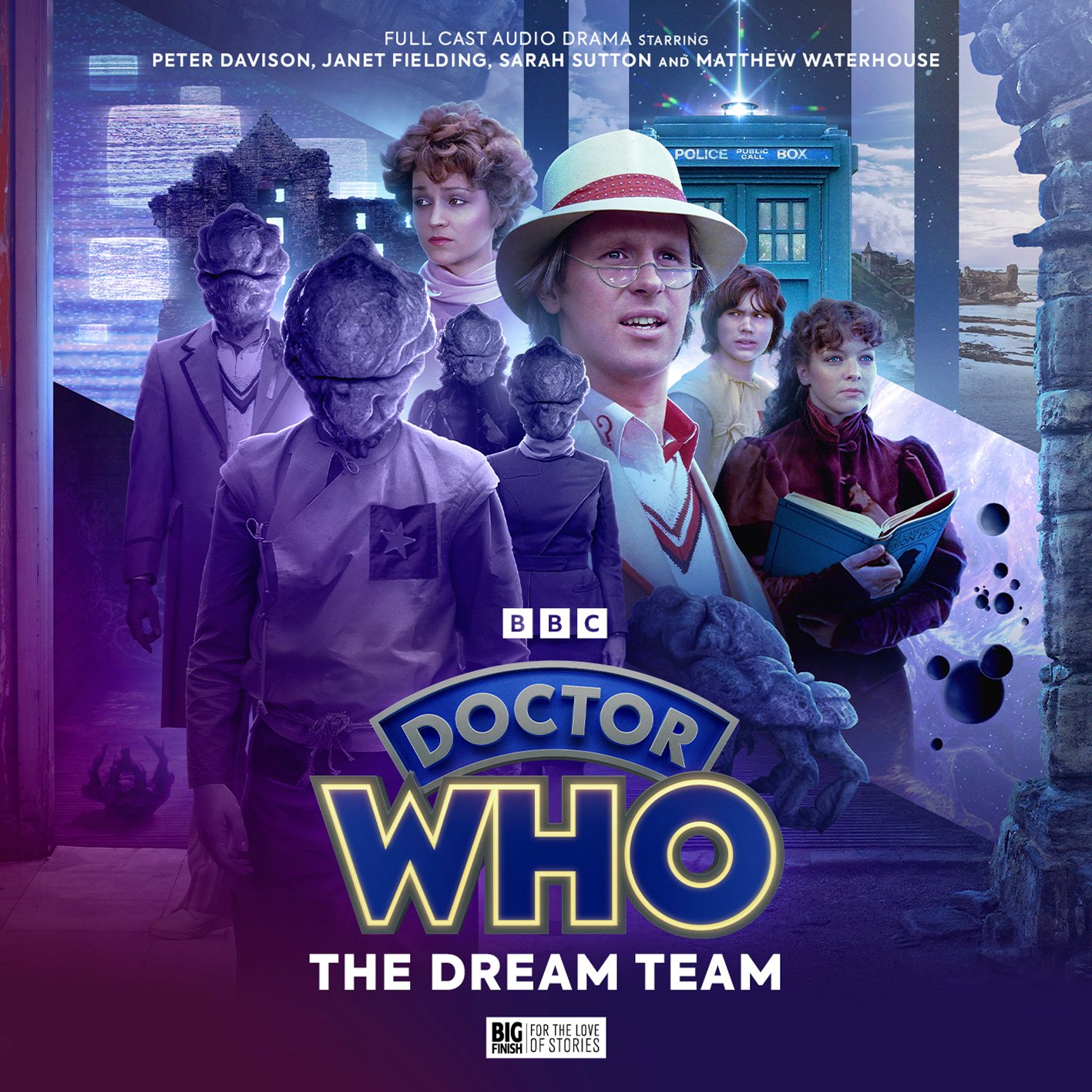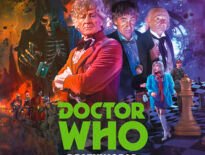The early Peter Davison era is always a divisive one. Many fans feel that the TARDIS was overloaded with both friends of the Doctor, and Adric. Such fans, of course, are wrong, and this was a fascinating era of the show. Like any reasonable human being, I enjoy dunking on Adric, but in fairness, he provided a fresh dynamic to Doctor-companion relationship, and in part, gave the era its own sense of character. Some have argued this era had too many companions. It’s an odd argument, one I recall asserted by Terrance Dicks himself; the Doctor only needs one companion to ask him questions. It’s a reductive argument, which would suggest that all those great ensemble shows have got it wrong, and Doctor Who is a show that exists solely to propel a story. I refute this, and some of the most loved stories tend to be balk against this argument. After all, Doctor Who, a show that thrives from fighting the trappings of any set conventions, should never be beholden to one way, and if the characters are diverse enough, we should embrace the variety of multiple interactors. There is no doubt in my mind that the voices of Tegan, Nyssa, and that lovely lad Adric are distinct – and even more so in audio.
It’s been a while since I’ve listened to this combo in audio, and it is a pleasure to return to the titular dream team. They are the team from my childhood, and I could never expect back in 1982 that I’d be listening to their adventures some forty years later. In fairness, I was very young and prone to being short-sighted on the potentiality of future transmedia growth for BBC television franchises. You’re pretty stupid at seven, after all.
The Dream Team offers two new tales that take two divergent approaches to Fifth Doctor storytelling. The first of these stories is The Merfolk Murders, a four-part tale, written by Tim Foley, and its nearest era comparison would probably be Black Orchid. Recently I discovered Black Orchid to be surprisingly divisive with fans. A WhatsApp watch-along revealed to me how many fans find it slow and plodding. Well, I probably find them slow and plodding – I rather like Black Orchid. Regardless of poor taste (mine or those fellow fans – you can decide), Black Orchid is infamous for being the only purely historical story of its era – unusually not woven around a historical figure, but a simple murder-mystery. While The Merfolk Murders is also an earthbound historical mystery, the mystery aspect is much more at the forefront. The story is set in 1940s Scotland at the start of the Second World War; however, the war remains very much part of the décor, and the story draws more on the conventions of an old-fashioned whodunnit. Some might say it was a Doctor WhoDunnit, but I’ll leave that pun for YouTube straplines, blog hacks, and chuckleful dads. The Merfolk Murders even nods to the Doctor’s own history as a detective, whose stories were written and published akin to another famous sleuth. It is time once again for the Doctor to adorn his cape and deerhunter, albeit with a more youthful visage.

Canonical cape capers aside, this is squarely a murder mystery. The suspects are introduced, a murder occurs, and it’s up to an oddly reluctant Doctor to solve the case. Murder mysteries are inherently difficult in an audio setting. You only have sound to visualise your settings, your suspects, and your scene of the crime. Even television and film give the audience sight as well as sound. As a result, the story does invariably have an uphill task to get the listener familiar to the characters, the settings, and potential motivations – you’ll have to listen very carefully throughout. That all being said, beyond the mystery aspects, The Merfolk Murders is filled with character. The ensemble cast are all given decent material to toy with, some of it riffs off past histories (Adric’s interest in food, for instance), but even this is used in new meaningful ways. There are a lot of fresh takes for the companions; both Adric and Nyssa get to forge some interesting new friendships (Adric’s is especially interesting), and the Doctor and Tegan get a lot of playful banter. The guest cast are both engaging and distinctive (essential to be able to clearly recognise your suspects in a murder mystery).
The Merfolk Murders is a fun and rich audio adventure. The only problem is you’ll have to follow the events very carefully if you are going to enjoy the final drawing room revelations.
To juxtapose the traditional whodunnit conventions of The Merfolk Murders, The Dream Team draws the listener into a more unconventional mystery framework. The Dream Team has the return of the Dream Crabs, the affectionate label for the bonce-buddies, the Kantrofarri who you will remember from the Twelfth Doctor Christmas special, Last Christmas. In The Dream Team, The Doctor, his friends, and Adric land on Concordium to come face to crab with the Kantrofarri – but who is the mastermind behind their unwelcome introduction to one of the wonders of space? To unravel the mystery, the Doctor must first work out, just what the hecking heck is real and what is just pure crab concocted fiction.
Funnily enough, while Merfolk’s biggest challenge is visualising the nuances of the narrative to best establish a whodunnit format, The Dream Team must contend with depicting multiple realities that themselves are porous and continuous, moving from one to another. In fairness, this isn’t an unheard-of convention for Big Finish stories, but nevertheless, again, it means the listener must keep their wits about them to enjoy the adventure to its fullest.

And is it enjoyable? I would say The Dream Team is, to some degree, an example of chalk and cheese… or oil and water… or pre-Earthshock Adric and post-Earthshock Adric. For some, the return of the Dream Crabs and the Inception-cum-Alien qualities will be a must. For others, the overlapping layers of reality, the continual questions of what is fake and what is true, might become tiresome. This observation is meant to cast no shade on author Lizzie Hopley: it’s simply a question of taste. Having said that the story is distinctly marmite, on reflection, I was a little in the middle. While I find the Dream Crabs, nice idea as they are, frustrating in concept, The Dream Team as a story is lifted by what it brings to the characters. Yes, I find the continual “we’re back to reality – or are we?” a little yawn-mongering; however, Tegan’s battle to see through the illusions, and see her failing, is great drama. Nyssa is equally faced with horrors both real and illusionary which leads to her acting in surprising ways, and Adric gets to shine: given agency to fight the illusionary world, he gets to play a slightly more heroic role than usual.
Overall, this two-parter is an enjoyable affair and ends with a revelation that will mean more to full-fledged Big Finish fans than the casual listener. Yes, The Dream Team’s pleasures do hinge slightly on whether you enjoy Inception-motivated crustations, but this story is a fun exploration into both the characters and histories of the Doctor’s companions.
Overall, The Dream Team is a boxset that provides the early Fifth Doctor TARDIS crew with some solid opportunities to explore their roles in a way the television show had little time, or inclination, to do. For me, this team was a great contribution to the history of the show and continues to find new ground. This audio set is fraught with challenges that naturally stem from the audio play medium, but it does meet those challenges effectively. The Dream Team is a fond exploration of an era which had the opportunity to do more and continues to do so.


